#pran x pat
Explore tagged Tumblr posts
Text
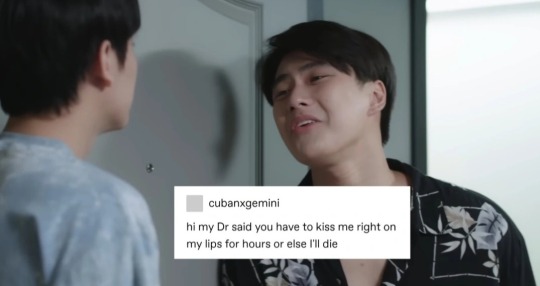


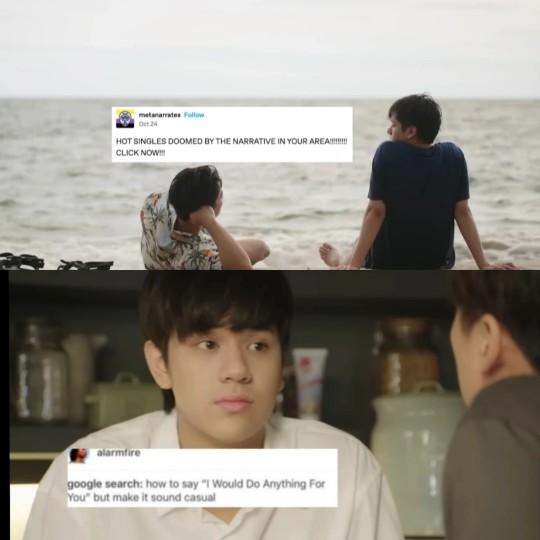

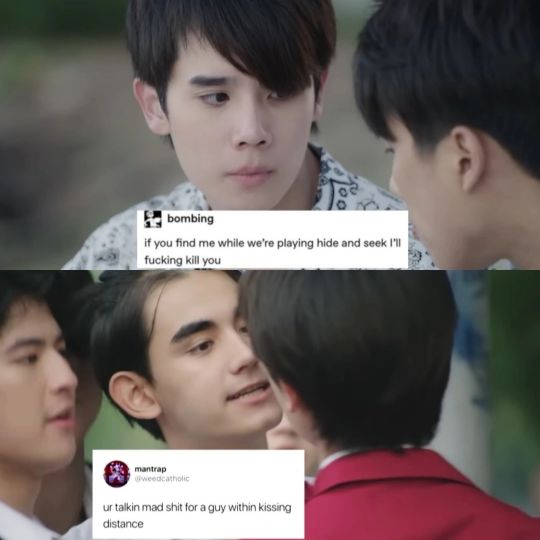


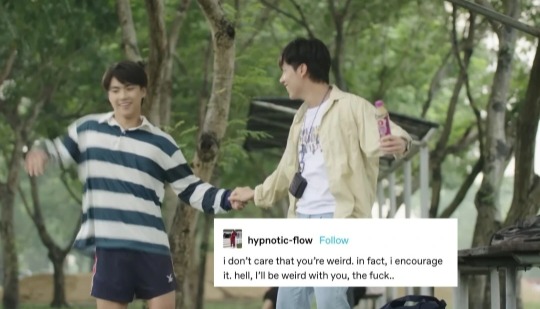
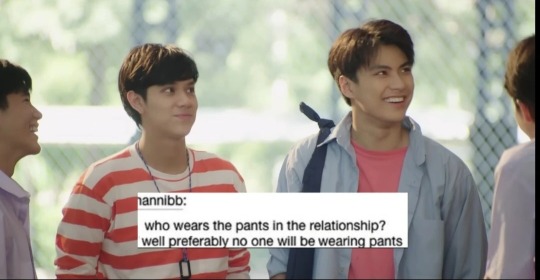
bad buddy textposts part 3✨
#bad buddy#patpran#pran x pat#bad buddy textposts#i made more bahahaha#is it obvious that im obssessed#it should be#bad buddy the series#yes baby your emotional walls are high and impenetrable can we kiss now is hands down the best thing ive ever read#bad buddy crack#waikorn
768 notes
·
View notes
Text
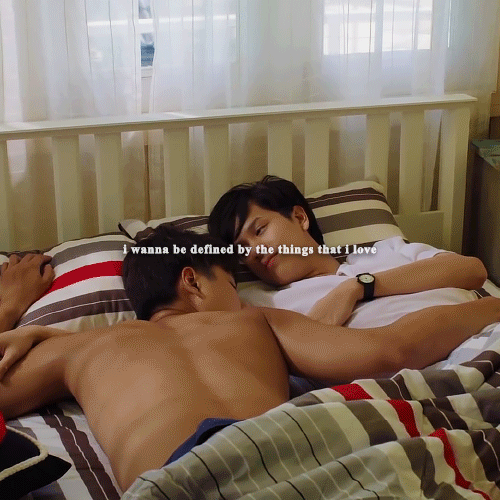




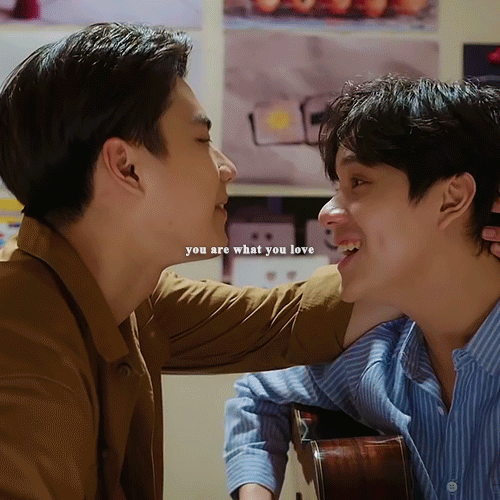
DAYLIGHT (TAYLOR SWIFT)
#bad buddy#bad buddy the series#patpran#pranpat#pat x pran#pran x pat#nanon korapat#ohm pawat#my creations#taylor sets#just thinking about them#my beloveds
308 notes
·
View notes
Text
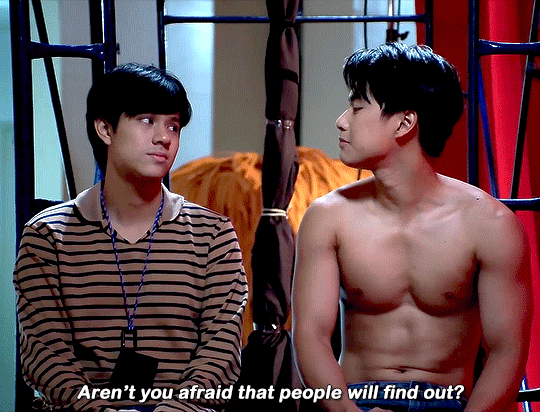

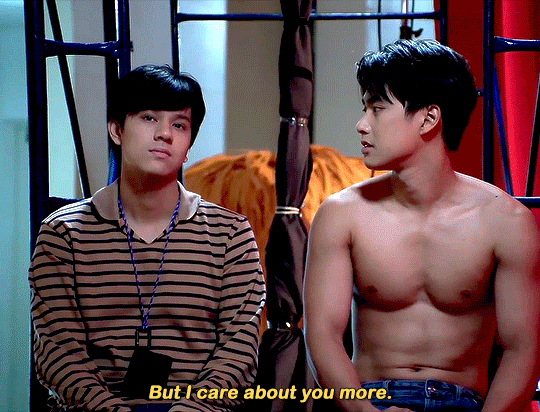
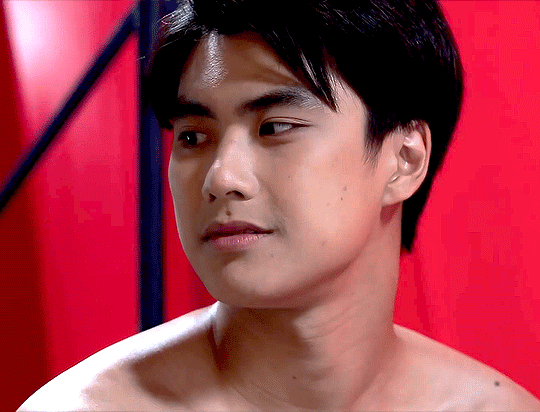
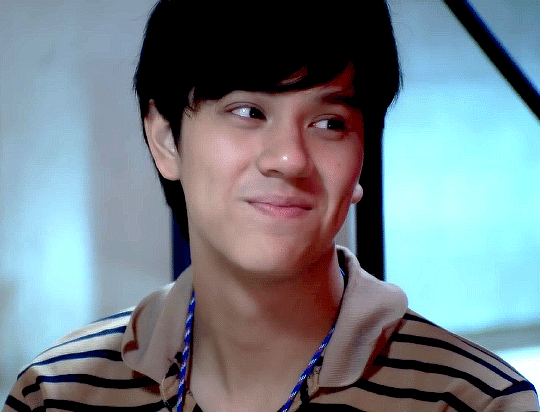
I'm your boyfriend. BAD BUDDY (2021)
#patpran#pat x pran#pranpat#pran x pat#bad buddy#bad buddy series#*#thai bl#bl drama#thai drama#bldramaedit#asiandramaedit#asianlgbtqdramas#asiandramasource#boyslovesource#dramasource#m: bad buddy#m: patpran
456 notes
·
View notes
Text



Pran and Pat wearing each other's colors ❤️💙
bonus An upset Pran (not really lol) with no blue clothing in sight

#our skyy 2#patpran#bad buddy#our skyy 2 the series#pranpat#our skyy x bad buddy#pat x pran#bad buddy the series#pran x pat#ohm pawat#nanon korapat#raemakes#s:bb#s:os2
234 notes
·
View notes
Text
Pain, Trust, and Separation in Some Asian Dramas (The Second Post In a Series of Utterly Un-scholastic, Highly Personal Big Meta)......
AKA, Turtles Catches Up With Old GMMTV: The Bad Buddy Rewatch Edition, Part 2 -- How Themes of Pain, Trust, and Separation Create Structure and Narrative in Bad Buddy and Other Asian BLs
[The following is a preamble I use for my Old GMMTV Challenge posts, here we go! What’s going on here? After joining Tumblr and discovering Thai BLs through KinnPorsche in 2022, I began watching GMMTV’s new offerings -- and realized that I had a lot of history to catch up on, to appreciate the more recent works that I was delving into. From tropes to BL frameworks, what we’re watching now hails from somewhere, and I’m learning about Thai BL's history through what I’m calling the Old GMMTV Challenge (OGMMTVC). Starting with recommendations from @absolutebl on their post regarding how GMMTV is correcting for its mistakes with its shows today, I’ve made an expansive list to get me through a condensed history of essential/classic/significant Thai BLs produced by GMMTV and many other BL studios. My watchlist, pasted below, lists what I’ve watched and what’s upcoming, along with the reviews I’ve written so far.Today, I offer the second of four posts on Bad Buddy, and the second in a Big Meta series on pain in some Asian dramas, including QLs and/or het romances. I'll look today at how ideas of pain in love, trust in love, and separation of partners/family members creates narrative drive in Bad Buddy and other Asian BLs. THIS IS A LONG POST, caveat emptor.]
Links to the BBS OGMMTVC Meta Series are here: part 1, part 2, part 3a, part 3b, and part 4
Well, after a lot of titles and a chewy preamble (thank you for getting through that, y'all!), I'm here to say that I'm combining my two ongoing meta series into one big ol' post here that I've been dying to write for months. In the course of my watching the shows on the Thailand-based Old GMMTV Challenge watchlist, as well as watching shows from my BL gateway of Japan, I've noticed that the themes of pain and trust in love, along with voluntary or involuntary separation, have been used to create dramatic and narrative structure within Asian dramatic stories to many emotional effects.
I'm celebrating the incredible Thai BL drama that is Bad Buddy in my OGMMTVC series at the moment, and within my Big Meta series on pain in Asian dramas, I examine how themes of pain so very often harken back to artistic, and even traditional, viewpoints of how pain, suffering, and melancholy are natural cultural assumptions within many collectivist Asian societies. In my first Big Meta on pain and suffering in Asian dramas, I wrote that "accepting pain and suffering is a part of the life we decide to live, from an Asian cultural perspective." Suffering is a naturally assumed part of life, a very distinct and identified part of a Buddhist's lived life, and even outside of Buddhism, accepting and living with difficulties of all kinds -- wealth disparities, the struggle for a good education and/or a successful career, the struggle to conform to collectivist familial and/or social expectations, etc. -- are extremely common themes that are unwound on in Asian lives on a minute-to-minute basis. The idea that an Asian must live with pain is often a root of intergenerational trauma, passed along from generation to generation of Asian children-to-adults. The social mores by which Asians are raised and live, to assume what Westerners might call a lack of unconditional parental love and affection, are certainly in part rooted in an assumption that living with pain and without the, say, luxury of turning over one's emotions at any given moment, are an automatic given.
As I've plodded through the OGMMTVC watchlist, I noticed very often that separation of people -- whether those people are lovers, children/parents, or simply just adults within a group -- is often a major narrative turning point in the course of a dramatized relationship. Of course it would be; it's a common trope within the romance genre, for instance.
But I find the separation of people otherwise connected to each other -- and the assumed pain of that separation, and the trust that people may have to return to each other -- particularly fascinating within the realm of Asian dramas, for reasons relating to the assumption of pain and suffering in one's life within Asian cultures that I mentioned above. In other words, the pain of separation, and the trust that one might have that one person will come back to another person -- are givens within the scope of Asian life.
In the following dramas, I note that separation is either a central storytelling point, or is a central focus of side characters:
1) The Thai filmmaker, Aof Noppharnach, has explored separation of people/lovers in many of his shows, including Still 2gether, A Tale of Thousand Stars (in multiple forms), and in Bad Buddy (also in multiple forms, romantic and/or familial).
2) Also from Thailand, Until We Meet Again and I Promised You The Moon are two non-GMMTV dramas in which separation of lovers plays an important concluding narrative role.
3) From Japan, the movie version of Cherry Magic: 30 Years of Virginity Can Make You a Wizard?! captures an important central narrative of separation that leads the franchise's two protagonists, Adachi and Kurosawa, to explore depth in honesty and intimacy that they may not have otherwise achieved in their everyday lives.
The painful separation that occurs in Aof Noppharnach's shows is most often related to the outside forces of life as it needs to be lived -- very often economically -- within or external to Thailand. In Bad Buddy, Pran leaves for Singapore for two years. I'm going to unwind much more on Pran leaving for Singapore in the final installment of my Bad Buddy OGMMTVC meta series, particularly by way of how he can do it, emotionally. But I want to offer a quick note about Pran's departure that the show gives a hint to (despite the pain that we feel in our hearts for Pat's loneliness from Pran, as depicted so beautifully by Ohm Pawat and his silent and longing existence as Pat in the first half of the Bad Buddy series finale). The BBS finale has Pran stating that he'll only be away for two years, and that the pay and the opportunity for an excellent architecture job were better in Singapore. In conversation with the fabulous Thai blogger, @recentadultburnout, RAB mentioned that this is a common occurrence among young Thais -- to move overseas for better job opportunities.
In spite of my heart breaking a bit for Pran being away from Pat when I first learned about his leaving for Singapore -- when RAB put Pran's departure in that context, I had to slap my cheek a bit. Because! I'm a child of Asian immigrants. Separation from family for better economic opportunities is a HUGE part of our paradigm of life between continents. As my Asia-based uncle, my mother's brother, once put it, in regards to my mother: "one of the children in our families always had to move away." For my mother's family, it was my mom who shipped off. Besides individuals seeking better economic opportunities for themselves, the economies of many Asian countries are dependent on the reception of remittances from overseas family members sending money back to their home countries, as my mom did for years; the Philippines is particularly notable for having a nearly 9% contribution from overseas remittances to its gross domestic product. In other words? The separation of loved ones is literally built into the financial frameworks of many Asian nations.
The separation of children or partners to overseas locales for the sake of better salaries and/or opportunities is simply a more assumed part of the cultural paradigm, I'd argue, in Asia than in the West. Family separations for jobs are extremely common in Asia; in the West, I'm not sure they are as assumed, especially for extensive separations, as the value placed on keeping a family unit together for cultural or spiritual reasons seems to be more a part of the Western fabric of life (despite our high rate of divorce).
We see an even more permanent economic separation happen in Still 2gether between two side characters -- Type, played by Toptap Jirakit, who is Tine's (Win Metawin) brother, and Man (Mike Chinnarat), who is Sarawat's (Bright Vachiwarit) friend. Man chased after Type during the first 2gether season; in Still 2gether, they're navigating their committed relationship, as Type contemplates, then accepts, a permanent job offer in Phuket, hours away from their home base in Bangkok.
As @lurkingshan put it, I might be the only person on the planet contemplating Type's and Man's relationship (lmao, it do be true), but I found Type's last conversation with Man, on the beach, to be particularly direct and moving for someone who has no immediate plans to move back to the side of the person he's dating.
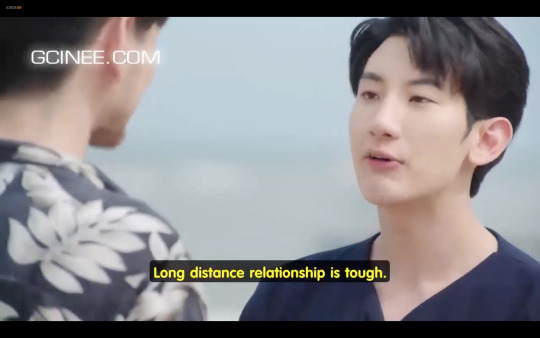
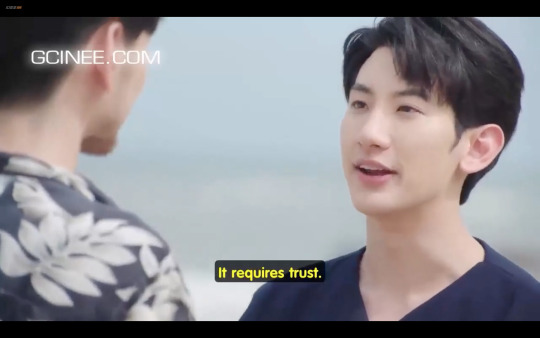
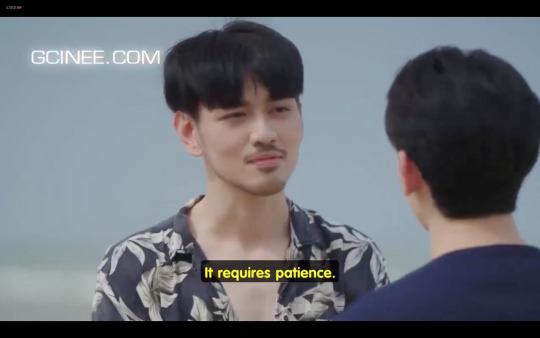
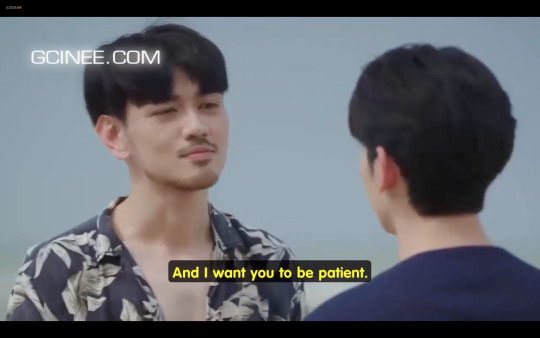

I think about this scene against the structure of the short series that is Still 2gether, which is centered around the protagonists of Sarawat and Tine being temporarily separated as they prepare to compete in a university-wide tournament. Sarawat has the most lovely contemplation on love during this separation, and even Aof Noppharnach himself admits that the glance that Sarawat and Tine give to each other as they pass each other in the lead-up to the ultimate tournament is his favorite scene he's ever filmed (!!!) (and that scene is sooooo reminiscent of Pran's and Pat's pinky-hold after their public "break-up").
In other words: Still 2gether is ALL about separation, and contemplating the strength of love relationships in the face of those separations. While Sarawat and Tine will get back together, after that tournament -- Type and Man are separated for the foreseeable future. There is no end indicated to the patience that Type wants from Man. The conversation is just, THERE, and hanging -- there's an acknowledgment that long-distance relationships are tough, but Type isn't offering to quit his job and move back to Bangkok. Instead, Type and Man are left to accept the reality that there is no end in sight to their separation.
And I think this was incredibly bold of Aof Noppharnach to include in a GMMTV BL that otherwise ended happily for Tine and Sarawat, the main protagonists. What I admire about Aof's works are these sly inclusions of open-ended, sometimes melancholy non-resolutions, either for his main or his support characters, that leave us as viewers often slightly unsatisfied or unfulfilled. He did this in particular with the character of Aof in Gay OK Bangkok, a web series that he screenwrote in 2016; and many might say that Pran being away in Singapore is also not the most satisfying of endings for our beloved PatPran in Bad Buddy. To me, these decisions to do this artistically are just incredibly reminiscent, again, of the kind of pain that we as Asians have been culturally attuned to accept, for the sake of economics, and/or for the sake of the betterment of our loved ones.
Besides economic separations in Aof Noppharnach's works, we also have separations related to family demands and desires. In A Tale of Thousand Stars and Our Skyy 2 x A Tale of Thousand Stars, we see Tian leaving Phupha's side for two years to study for a graduate degree at Tian's mom's insistence; and we see Phupha refusing to join Tian, after Tian has graduated and moved back to Pha Pun Dao, on trips Tian takes back to Bangkok to celebrate his birthday with his parents.
When I rewatched ATOTS earlier this year, I noted that both Phupha and Tian were remarkably bad communicators throughout the original series -- and I posited that, in large part, their terrible communication was borne out by way of the both of them being raised in traditionally masculine Asian households that seemed to not allow for leeway regarding emotional revelations. BOTH Phupha and Tian were expected and intended to follow in the footsteps and demands of their family members. To the end of the ATOTS storyline in Our Skyy 2, Phupha brings up his parents -- and he hears what he has been wanting to confirm from Tian's parents, in their desire to have Phupha take care of Tian for the rest of their lives.


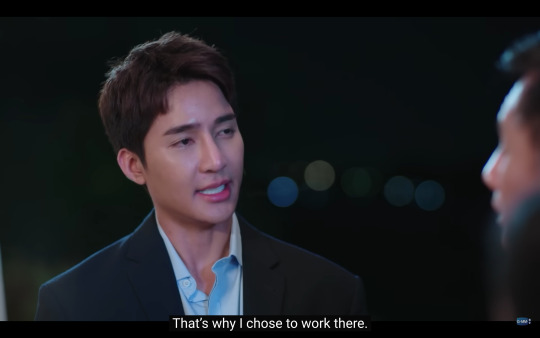
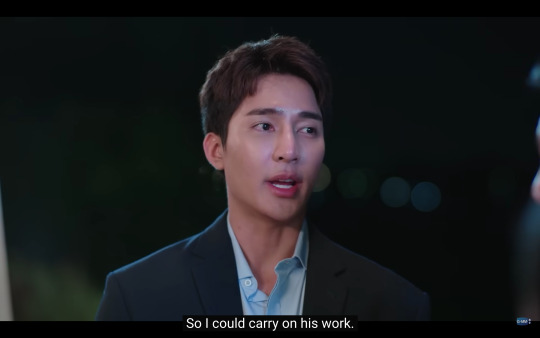
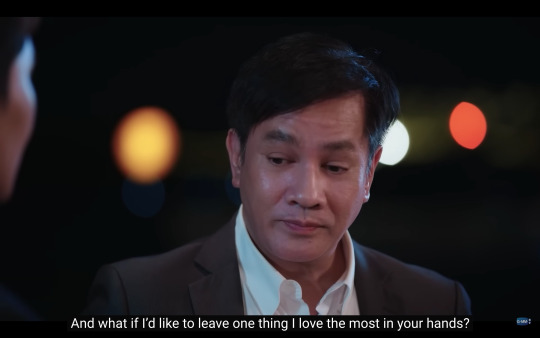
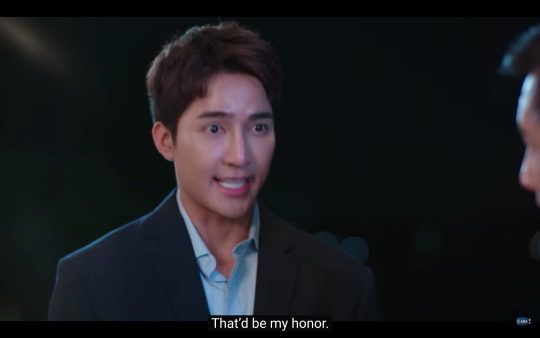
Phupha in particular needed to have multiple gateways opened to him, vis à vis Tian's family, in order to properly and openly confirm his permanent love and commitment to Tian. If Phupha didn't have that? He was willing to be separated from Tian, either temporarily, or at length. Phupha needed a kind of culturally accepting door opened to him -- as a man raised in what we assume to be a rural and traditional environment that may very well have not allowed for a gay man to live openly and honestly. Phupha indeed follows in his father's footsteps, to the extent of never leaving Pha Pun Dao, and demanded that he have Tian's family's approval before making the final commitment to Tian to love Tian forever.
I find the cultural nuances of nuclear family separation, or separation encouraged by nuclear family, to be particularly heartbreaking in many of Aof Noppharnach's works. We know that Jim and Jam, brother and sister in Moonlight Chicken, ran away from their Isan hometown as youths to find their lives in Pattaya, where we meet them in the context of that show. But separation either from nuclear family, or more impactfully, done by nuclear family, is most evident in Bad Buddy.
Besides Pran voluntarily leaving for Singapore, we know that Pran has been involuntarily separated from Pat before -- when Pran was transferred to a boarding school in 10th grade by his mother, Dissaya. Before that transfer, Pran and Pat were technically "separated" by their parents in so far as they were not supposed to become friends -- all while competing heavily against each other in every category of life.
That boarding school transfer? That wasn't just separating Pran from Pat. What I found remarkable about that separation during my recent BBS rewatches is that Dissaya HERSELF chose to be physically separated from her own son, for the sake of her rivalry with Pat's father, Ming.
I'm thinking about this particularly from the words she used with Pran as they sat at breakfast together before Pran started his second year at university, when Dissaya said that Pran could date anyone, men or women, as long as he "didn't date [the next door kid]."
My interpretation of that perspective is that Dissaya did not want Pran to relieve the heartbreak that she herself experienced when she was close with Ming in her teenage years.
In other words: she chose to send her son away in the face of her ongoing, lifelong fear that Ming and his family would once again wreak havoc on her and her clan.
In the continuation of the intergenerational trauma wrought upon Pat and Pran by their parents -- as a mother myself, this seems to be particularly egregious. Dissaya would have rather had her son AWAY FROM HER, than to contemplate her son even being WITHIN physical proximity to Pat in the context of her hatred of Pat's father, Ming, and the fear that she had that the Jindapats would negatively influence the Siridechawats again.
(The wonderful @telomeke reminded me, in conversation on this topic, that the first question Dissaya asks Pran, after learning about the first faculty fight in episode 1 when Pran re-encounters Pat for the very first time, was, "Did he hurt you, Pran?" Dissaya cannot bear to allow the Jindapats to hurt her son, or her family, ever again.)
I wrote in my first Big Meta on pain and suffering that Asian parenting expectations and mores are far more conditional than they are in the West, as parenting mores in the West are centered around unquestioned and unconditional love from parents to children. So much of Bad Buddy meta out there focuses on the internal experiences of Pran and Pat. When I sat back to think about Dissaya making the decision for herself to be separated from her son for years -- and then to also contemplate pulling Pran FROM COLLEGE when she learns that Pat goes to Pran's university -- I mean. We know Dissaya and Ming both tried their best to embody their hatred of each other into their children. But Dissaya takes it a couple steps further, by attempting to literally control Pran's physical existence vis à vis Pat, which -- and I'm going to sound like a judgmental Westerner here, even as an Asian -- strikes me as out of line by way of just pure emotional projection onto one's children.
When Pran goes to Singapore, at the end of the series, it's out of his own volition. Again, I'll write more about this at the end of my BBS OGMMTVC meta series. But what he experienced by ways of many TYPES of separation from Pat throughout his life -- competitively, emotionally, and then physically -- are extensive. He was physically separated from Pat by Dissaya. He was theoretically "separated" from Pat emotionally, by being discouraged in having a friendship with Pat. He is physically separated from Pat *again* when he goes to Singapore. And I posit later in this piece that Pat and Pran had another theoretical "separation" when they are pretending to be broken up throughout the course of their relationship.
When I think about what teenage Pran must have felt to be *physically sent away* -- BY and FROM his own family, for their sake of his family's desires to avoid ANOTHER family -- it explains a hell of a lot more about Pran's tendency to dissociate, particularly during stressful times. (We see this when he's alone at the demolished bus stop, and cutely in Our Skyy 2, as Pat encourages a grumpy Pran to go to Pha Pun Dao.)
And where Pat balanced Pran out -- where Pat could offer the kind of companionship, and relaxed and equitable communication that Pran had never had with his family -- was where Pran could finally experience truly open and SAFE love from and with another person, another person who wouldn't *send him away* if Pran didn't play by their rules. Instead, Pat fought by Pran's side, and Pran was willing to fight, too, and they remained together, and safe in their love and trust.
Whew. Dissaya separating Pran from his own family, from herself -- to leave him alone at boarding school -- seriously punches me in the gut, especially as a mother myself. I'm thinking about a teenager, on the cusp of adulthood, alone to contemplate his unending love for Pat, and I'm like.... I wouldn't leave a kid alone like that for a moment. But for Dissaya, her husband, and their pride? It seemed to be a worthwhile decision in that moment. A decision that we know would blow up in their faces in episode 10 of Bad Buddy.
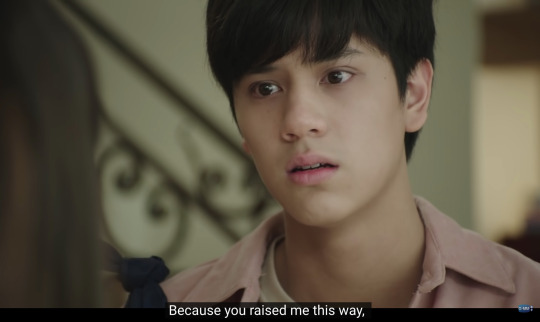
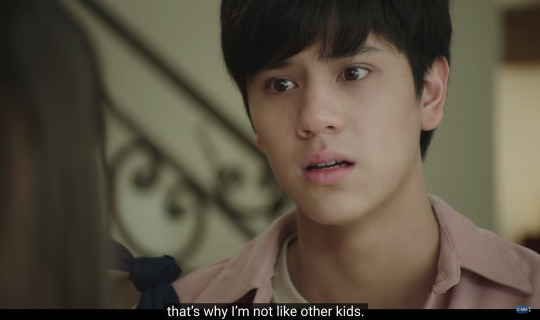
In Pran's first separation from Pat -- Pran did not have personal agency. He did have agency later on, as he moved to Singapore, which again, I'll contemplate in a further meta.
Two instances where I was impressed by protagonists leveraging their agency vis à vis temporary separations from their partners was in Until We Meet Again and in I Promised You The Moon.
UWMA's Pharm was first and foremost presented as a blushing maiden. HOWEVER: Pharm demonstrated quite a bit of sexual agency early in the series. He was forward in his crush on Dean. He contemplated openly being gay. And he wasn't afraid to push Dean away when Dean was moving too fast sexually.
At the end of the series, after Dean and Pharm have resolved their spiritual connection vis à vis the embodied spirits of Korn and Intouch meeting once more -- Pharm wants to know if the love between him and Dean is real, and independent of the influence of the spirits of Korn and Intouch. So: Pharm asks for a break.
Throughout UWMA, Dean is the obvious seme, and Pharm is the blushing uke. I squealed in DELIGHT when I first watched Pharm asking for the break. Yes, Pharm loved Dean -- and what I saw in Pharm's asking for a temporary separation was truly out of that love, to confirm between the both of them that their relationship was very much indeed a forever relationship. God, I get chills thinking about it: Pharm was safe enough in his sphere with Dean to ask for and to GET the agency-driven space that HE NEEDED to feel fully confident in the relationship. That was a risky move that paid off for the two guys in dividends in the end. Dean had no choice but to say yes there.
The fabulous Oh-aew in I Promised You The Moon goes even further than Pharm. He fucking breaks up with Teh! After Teh cheated on Oh-aew! YES, HOMEY, YES! No wibbling on Oh-aew's end. Oh-aew was devastated, yes. But he knew he had to have Teh out of his life in that moment, for the sake of Oh-aew's own happiness, growth, and development. He even rejects Teh's reach-out at the end of their college careers.
What stuck me as so golden about the ending of IPYTM was that that break-up wasn't actually presented as temporary. They were apart for OVER A YEAR (thank you kindly to @shortpplfedup for the temporal fact-check!). Oh-aew held his ground. He needed his time and space. He needed to grow! And he valued that, individually.
I'm celebrating these two instances of agency-driven separations because of the style of their intention vis à vis the protagonists asking for, needing, and leveraging these separations. With the economic and involuntary separations I talked about earlier -- it's like there was a higher need, whether it was for money, a better career opportunity, fear, or selfishness on the part of a family to create the separation.
With Pharm and Oh-aew: the separations they demanded were purely personal and for their own growth. We know now that Pharm and Oh-aew get their endings with their partners. Pharm has a purely happy ending with Dean in Between Us. Oh-aew's ending with Teh is open-ended -- we don't know what chaos Teh will wreak next -- but at least we know they're navigating that chaos together again.
The last drama I wanted to take a look at regarding pain, trust, and separation is the fabulous movie continuation of Cherry Magic: 30 Years of Virginity Will Make You a Wizard?! (I always love writing ?! whenever I talk about Cherry Magic, lol).
The central separation in the movie of the two protagonists, Adachi and Kurosawa, comes about when Adachi is transferred to Nagasaki for work. As @neuroticbookworm and @lurkingshan can attest to: a Western viewer of Japanese BLs will often find themselves screaming to a screen, "JUST TALK ALREADY!," and a uniquely common aspect of Japanese doramas is that so much of communication in Japanese culture is silent, unsaid, kept internal by collectivist social pressures to not make waves with another person -- which automatically creates ongoing questions of trust between partners. When Adachi (Akaso Eiji) shares with Kurosawa (Machida Keita) that Adachi will be moving, Kurosawa shares in words that he's happy for Adachi, but through very simple body language, communicates that he is feeling otherwise.
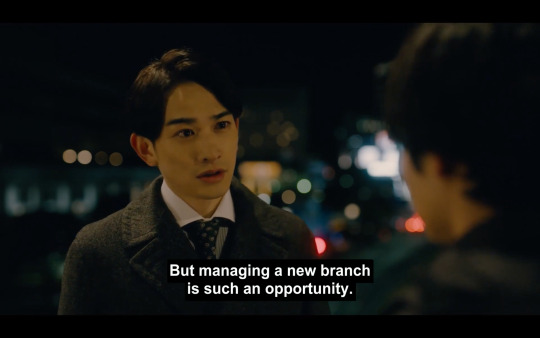
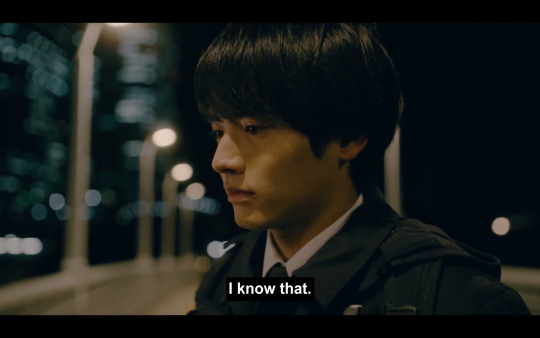
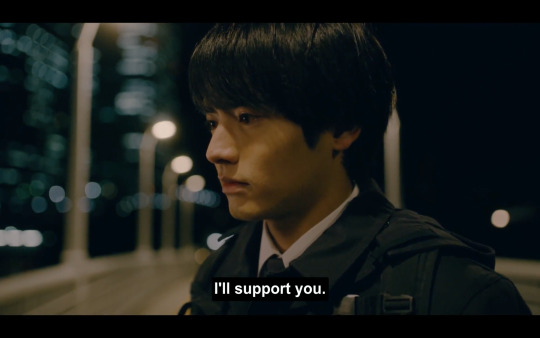
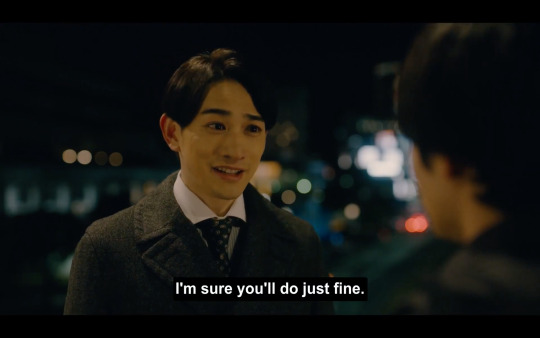
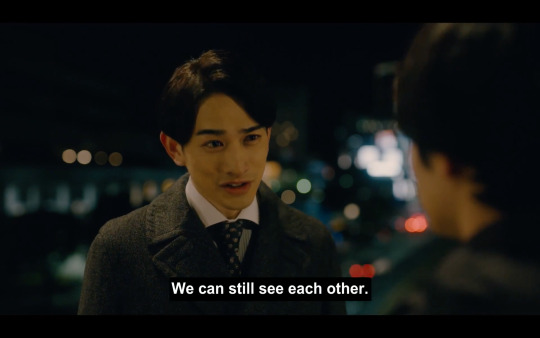
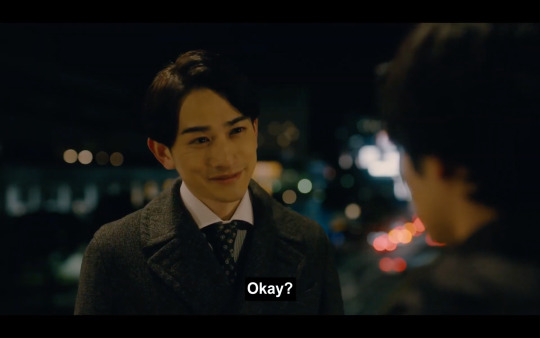
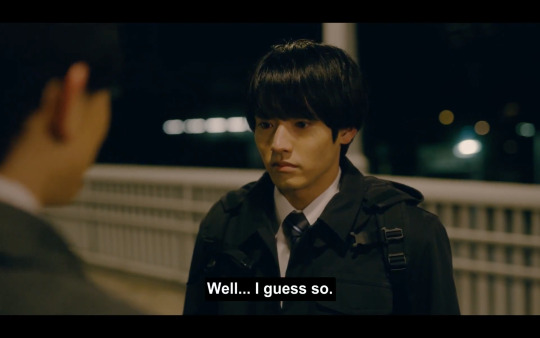
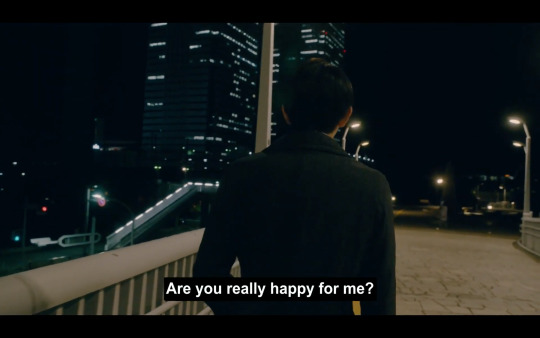
Later in the movie, Adachi gets into an accident in Nagasaki, and Kurosawa rushes to be by Adachi's side. Kurosawa is clearly traumatized. And Kurosawa finally reveals his feelings about the entire situation -- a rare display of direct emotional confession.


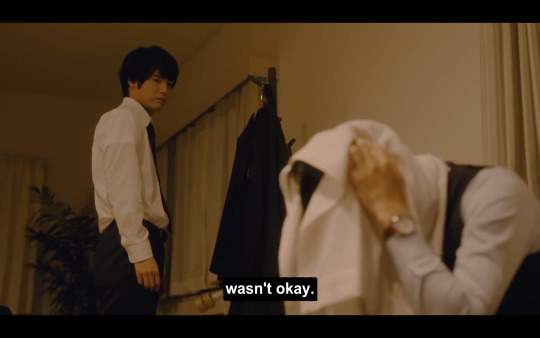
We think that Adachi moved to Nagasaki for this job opportunity -- separating himself from the incredibly devoted and head-over-heels-in-love-with-Adachi Kurosawa. Adachi knows well enough that Kurosawa is suffering in this separation. But later in the movie, after Adachi has moved back with Kurosawa, do we learn Adachi's true intentions. Adachi wants to make himself invaluable at work -- so that Adachi's and Kurosawa's shared company will not separate them if the company finds out about their relationship.
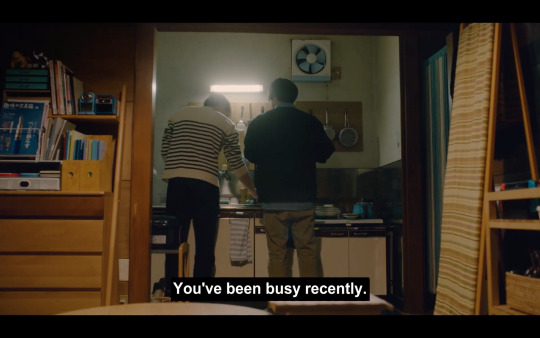

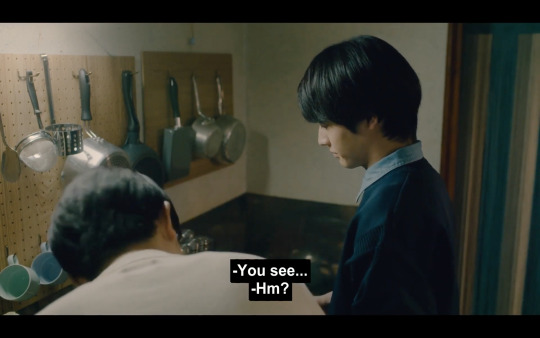
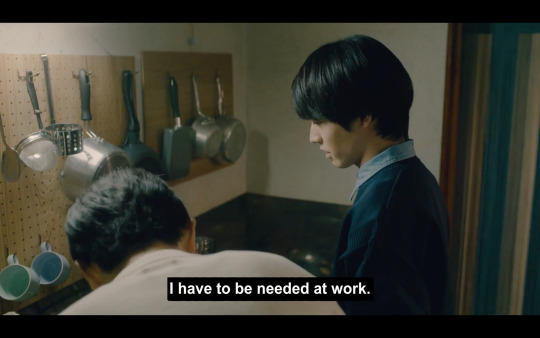

This particular conversation between Adachi and Kurosawa -- after their separation, after they've moved in together -- is a huge turning point in the movie for Adachi, who had usually been the reluctant uke in their relationship prior to this moment. In this conversation, Adachi expresses his fear that outside forces will eventually separate them, and he wants to do what he can to ensure the safety of their relationship.
To me, this is incredibly reminiscent of the compromises Pran and Pat make in Bad Buddy to keep their relationship secret -- another theoretical "separation" -- from their parents for the health, safety, and viability of their relationship.
As well, this conversation between Adachi and Kurosawa moves forward into Adachi's desire to come out to their families. He was inspired by the immediate aftermath of the accident, in which Kurosawa was the last person to find out that Adachi had gotten hurt -- only after Adachi's family and company were notified.
The nuances of this separation between Adachi and Kurosawa -- and what the separation LED TO, which was an eventual and permanent commitment between Adachi and Kurosawa -- are incredibly layered. Adachi made an economic separation from Kurosawa. But it was also rooted in his desire to acclimate his company to his company's dependence on Adachi, so that the company would choose Adachi's contribution to the company over the potentially taboo reality of his same-sex relationship with a colleague in Kurosawa. In other words: he wanted to leverage the separation and his work performance upon his return, to render the company no choice in choosing Adachi's economic performance over his personal and private choices.
(One insight into Japanese culture is that for decades, Japanese corporations have wanted their employees to be married, to complete a seamless connection between household and "office" families. The Japanese BL Kinou Nani Tabeta?/What Did You Eat Yesterday? makes reference to the fact that the main protagonist, Shiro, becomes an independent lawyer because, as a gay man, he may have been pressured to take a wife in another, more group-oriented corporate setting.)
AND, following this, Adachi wanted to come out to his and Kurosawa's families, to also acclimate them to their relationship, so that their families would also not threaten the sanctity and safety of their relationship. And his gamble worked -- and their families accepted them, and they were able to make a permanent commitment to each other.
Without a strategically economic separation, Adachi and Kurosawa could not have achieved key moments of communication that led to their ability to find safety in their external environments, and make a personal and private permanent commitment to each other. The separation to Nagasaki was Adachi's lever to move their relationship forward.
It's so nuanced, so layered, and so strategic on Adachi's end, to use the work separation and his commitment to his company as such a motivator to propel his relationship forward and permanently with Kurosawa -- especially vis à vis the unique nuances of spoken and unspoken communication in Japanese society, which are remarkably different than the styles of communication we see in Thai dramas.
In Pran's and Pat's conclusion in the Thailand of Bad Buddy, they go in the opposite direction: for the sanctity and safety of their relationship, they act out a break-up scenario (with Dissaya telling Pran, "come back to your family," ha), and keep their committed relationship a secret. And this happens *two years* before the context of an actual, physical separation when Pran decides to move to Singapore after graduation.
It's a bit of a switcheroo from what we'd expect by way of open vs. closed communication between Japan and Thailand. But both scenarios, from Cherry Magic to Bad Buddy, work brilliantly well to ensure that all relationships are safe and solidified.
I'm not sure that I can say, globally, that separation from one's nuclear family, or separation from a partner, are common occurrences in manifested everyday reality. As I mentioned before, the economies of many countries are dependent on the physical separation of their citizens to other locales to send back monetary remittances. But more often than not -- when partners are partnered, they tend to want to stay by each other's sides.
I love that many Asian dramas do not shy away from the many realities as to why partners or children may be voluntarily or involuntarily separated from loved ones. Our beloved dramas show us the devastation of involuntary separations, as rendered by Dissaya unto Pran. We see that economic separations can actually LEAD to a solidifying of relationships in the case of Adachi and Kurosawa. We see that family-motivated separations, in the cause of Phupha and Tian, simply needed the investment of time for their relationship to reach a point of comfortable commitment. We see that agency-driven separations by Pharm and Oh-aew can lead to emotional clarity. And, we see that theoretical, secret-kept "separations," of the kind that Pat and Pran created for themselves, to protect their relationship, were risks worth taking, simply for them to be together and happy.
Pain and happiness are not emotions independent of each other. At least in the eyes of my Asian cultures, human beings embody all emotions, all the time. Humans are certainly primed, internally and socially, to seek happiness and balance. But as I've posited here in this post -- is there pleasure without pain? The pain of separation, the trust that partners and family members can learn from each other through separation, and the lessons and communicative ability to solidify relationships after the obstacles of separation, are all themes of life that, I think, are worth unwinding on, in glorious emotional detail. And I love that our beloved Asian dramas do not shy away from these examinations.
(Tagging @dribs-and-drabbles and @solitaryandwandering by request! If you'd like to be tagged, please let me know!)
[Well, this one was a doozy -- if you got through it all, I thank you! Next up, next week, is another post I've been dying to write for months. I had the opportunity to engage in lengthy conversation with a number of FABULOUS Asian Tumblr bloggers, all of us Bad Buddy stans, to reflect on our experiences as Asian reviewers watching BBS and to talk about what we related to. I have a list, a WHOLE LIST! of themes to expound on. I'm calling it Asian Cultural Touchpoints Within Bad Buddy. And I may need to split it into two posts, because there's a lot to talk about. Join me and my friends next week in our continued Bad Buddy brain-rot sesh!
Here is the status of the Old GMMTV Challenge watchlist. Tumblr's web editor loves to jack with this list; please head on over to this link for the very latest updates!
1) The Love of Siam (2007) (movie) (review here) 2) My Bromance (2014) (movie) (review here) 3) Love Sick and Love Sick 2 (2014 and 2015) (review here) 4) Gay OK Bangkok Season 1 (2016) (a non-BL queer series directed by Jojo Tichakorn and written by Aof Noppharnach) (review here) 5) Make It Right (2016) (review here) 6) SOTUS (2016-2017) (review here) 7) Gay OK Bangkok Season 2 (2017) (a non-BL queer series directed by Jojo Tichakorn and written by Aof Noppharnach) (review here) 8) Make It Right 2 (2017) (review here) 9) Together With Me (2017) (review here) 10) SOTUS S/Our Skyy x SOTUS (2017-2018) (review here) 11) Love By Chance (2018) (review here) 12) Kiss Me Again: PeteKao cuts (2018) (no review) 13) He’s Coming To Me (2019) (review here) 14) Dark Blue Kiss (2019) and Our Skyy x Kiss Me Again (2018) (review here) 15) TharnType (2019-2020) (review here) 16) Senior Secret Love: Puppy Honey (OffGun BL cuts) (2016 and 2017) (no review) 17) Theory of Love (2019) (review here) 18) 3 Will Be Free (2019) (a non-BL and an important harbinger of things to come in 2019 and beyond re: Jojo Tichakorn pushing queer content in non-BLs) (review here) 19) Dew the Movie (2019) (review here) 20) Until We Meet Again (2019-2020) (review here) (and notes on my UWMA rewatch here) 21) 2gether (2020) and Still 2gether (2020) (review here) 22) I Told Sunset About You (2020) (review here) 23) YYY (2020, out of chronological order) (review here) 24) Manner of Death (2020-2021) (not a true BL, but a MaxTul queer/gay romance set within a genre-based show that likely influenced Not Me and KinnPorsche) (review here) 25) A Tale of Thousand Stars (2021) (review here) 26) A Tale of Thousand Stars (2021) OGMMTVC Fastest Rewatch Known To Humankind For The Sake Of Rewatching Our Skyy 2 x BBS x ATOTS (re-review here) 27) Lovely Writer (2021) (review here) 28) Last Twilight in Phuket (2021) (the mini-special before IPYTM) (review here) 29) I Promised You the Moon (2021) (review here) 30) Not Me (2021-2022) (review here) 31) Bad Buddy (2021-2022) (thesis here) 32) 55:15 Never Too Late (2021-2022) (not a BL, but a GMMTV drama that features a macro BL storyline about shipper culture and the BL industry) (review here) 33) Bad Buddy (2021-2022) and Our Skyy 2 x BBS x ATOTS (2023) OGMMTVC Rewatch (The BBS OGMMTVC Meta Series is ongoing: preamble here, part 1 here, and more reviews to come) 34) Secret Crush On You (2022) [watching for Cheewin’s trajectory of studying queer joy from Make It Right (high school), to SCOY (college), to Bed Friend (working adults)] (watching) 35) KinnPorsche (2022) (tag here) 36) KinnPorsche (2022) OGMMTVC Fastest Rewatch Known To Humankind For the Sake of Re-Analyzing the KP Cultural Zeitgeist 37) The Eclipse (2022) (tag here) 38) The Eclipse OGMMTVC Rewatch For the Sake of Re-Analyzing an Politics-Focused Show After Not Me 39) GAP (2022-2023) (Thailand’s first GL) 40) My School President (2022-2023) and Our Skyy 2 x My School President (2023) 41) Moonlight Chicken (2023) (tag here) 42) Bed Friend (2023) (tag here) 43) Be My Favorite (2023) (tag here) 44) Wedding Plan (2023) 45) Only Friends (2023) (tag here)]
#bad buddy#bad buddy the series#bad buddy meta#bad buddy the series meta#backaof noppharnach#aof noppharnach#nanon korapat#ohm pawat#ohmnanon#patpran#pran x pat#pat x pran#still 2gether#a tale of thousand stars#atots#our skyy 2 x bad buddy x a tale of thousand stars#cherry magic#cherry magic the movie#until we meet again#i promised you the moon#i told sunset about you#ipytm#itsay#moonlight chicken#the bbs ogmmtvc meta series#turtles catches up with the essential bls#turtles catches up with thai bls#turtles catches up with old gmmtv#the old gmmtv challenge#ogmmtvc
89 notes
·
View notes
Text

pulled this out from the depths of my ipad. I missed them desperately.
#patpran#thai bl#bl series#thai bl drama#thai drama#thai series#thai bl series#thailand#thaibl#pran x pat#pran#pran parakul#pat napat#bad buddy the series#bad buddy series#bad buddy
48 notes
·
View notes
Text
It's the "I love you but not now" that did it for me 😂😂😂
#our skyy x bad buddy#our skyy 2 x bad buddy#bad buddy#bad buddy series#bad buddy the series#patpran#pat x pran#pran x pat#ohmnanon#ohm nanon#nanon korapat#ohm pawat
236 notes
·
View notes
Text



I made an illegal sound. Absolutely illegal.
#our skyy 2 x bad buddy#our skyy 2#our skyy 2 x bb#bad buddy#patpran#bl series#thai bl#thai drama#thai series#thaibl#asianlgbtqdramas#asian lgbtq dramas#thai bl series#bl drama#gmmtv#thai bl drama#pranpat#pat x pran#pran x pat
217 notes
·
View notes
Text
I'm currently watching Bad Buddy, I just finished ep.5 and the kiss they just had left me breathless
You can sense the desperation and fear in their kiss, in the way they were grabbing and grasping each other, how they were crying, and that was Pat and Pran first kiss.
I'm honestly devastated after watching it.
#bad buddy the series#bad buddy#pran x pat#patpran#pat x pran#pranpat#ohmnanon#raikantopeni#raikantopini#thai bl#bl show#bl drama#gmmtv bl#thai boys love#thaibl#thai bl series#bl dramas#bl series
139 notes
·
View notes
Text
i think what i loved the most about the special episodes was the way pat and pran’s insecurities were only their own. literally. they were worrying about things that didn’t exist. pran worrying he may be a burden for pat, pran worrying pat may be doing too much in their relationship, pran not feeling enough... were all things that didn’t even occur to pat. pat doesn’t see anything he does as a sacrifice. pat loves when pran needs him to be helpful, pat needs to feel helpful. pat is afraid he isn’t allowed to feel like he needs pran to live so he needs pran to need him back as a result. but pran doesn’t have a problem with pat needing him, at all. he likes it. all of this is just a consequence of how they were raised, of the 20 years of life they spent not being a couple, not being each other’s reassurance that they’re fine the way they are and they are allowed to be weak and that they can rely on someone else and not just do everything by themselves/for others.
urgh. they’re so disgustingly in love tbh.
#patpran#gia talks about bad buddy#our skyy 2#our skyy x bad buddy#bad buddy x atots#bad buddy#bad buddy the series#bbts#pat x pran#pran x pat#phat x pran
99 notes
·
View notes
Text
Face of the man who is still in disbelief that he finally got the one he was in love with and yearning for years. Thinking about Pat is Pran's first, last and the only love and also the one he loved his whole life! IM BAWLING PLEASE T_T

#nanon korapat#ohm pawat#ohmnon#ohmnanon#patpran#pranpat#pat x pran#pran x pat#pran parakul siridecha#pat napat jindapat#bad buddy the series#our skyy x bad buddy#our skyy2#bl love#bl series#thai boys love#love#redgreen
69 notes
·
View notes
Text
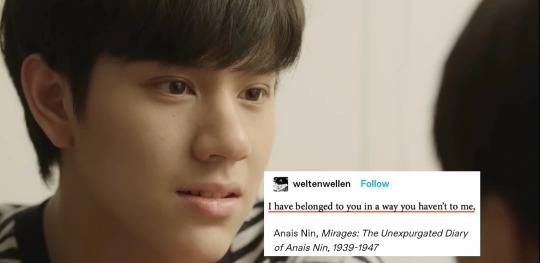
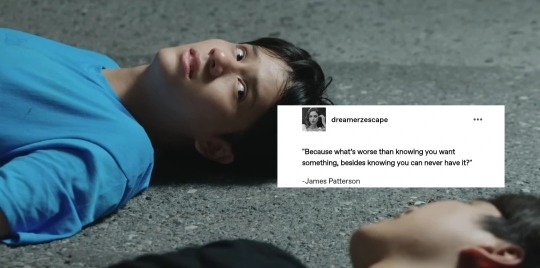



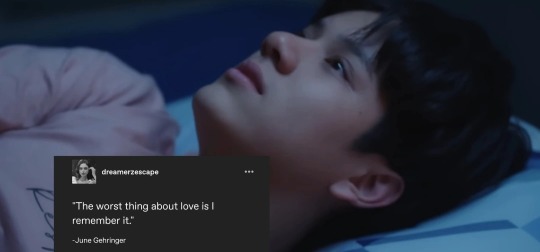


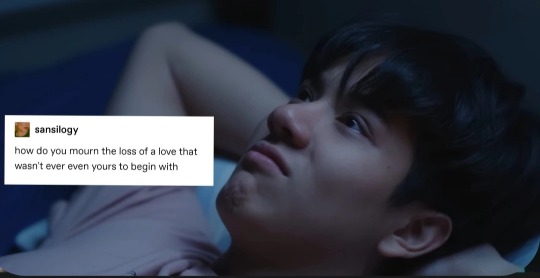

bad buddy textposts part 5✨
#bad buddy#patpran#pran x pat#bad buddy textposts#im sorry for putting your heart through this but you have to know what ive been through while making these#the way the romantic angst in bad buddy is really just half the show and yet feels so overwhelmingly part of my feelings about it#pran parakul#you tiny bundle of yearning you#bad buddy series#this show truly the knife i turn inside myself
259 notes
·
View notes
Photo
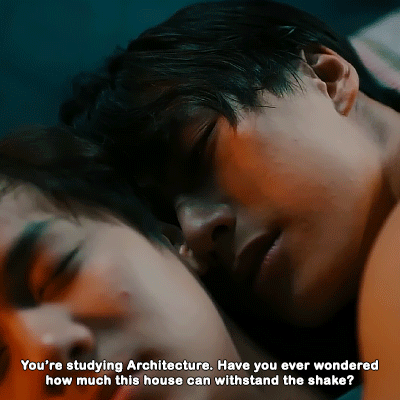

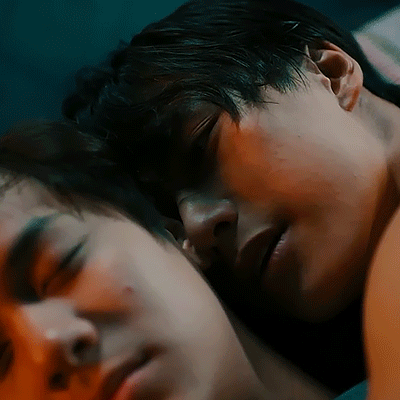
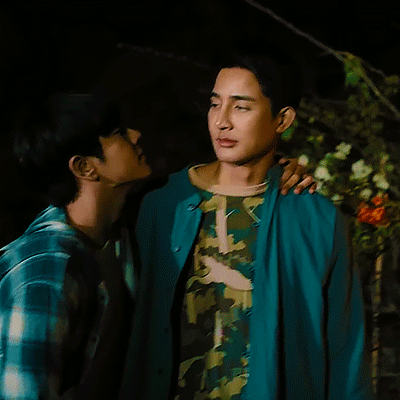

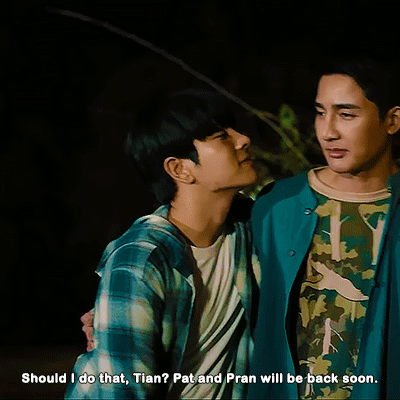
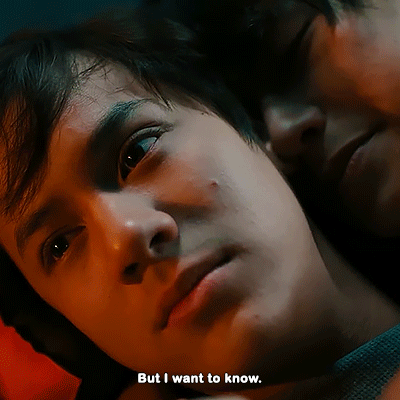

Pat, Tian, and the Art of Subtlety OUR SKYY 2 (2023)
#our skyy 2#our skyy 2 the series#bad buddy#bad buddy the series#a tale of thousand stars#atots#patpran#pranpat#pat x pran#pran x pat#phutian#phupha x tian#phu x tian#ohm pawat#nanon korapat#earth pirapat#mix sahaphap#my creations
641 notes
·
View notes
Photo



OUR SKYY 2 x BAD BUDDY (2023) Trailer
#ohmnanon#pranpat#patpran#asianlgbtqdramas#lgbtedit#Our Skyy 2#our skyy 2 x bad buddy#Nanon Korapat#Ohm Pawat#pran x pat#pat x pran#bad buddy the series#bl drama#bl series#gifs#mine
114 notes
·
View notes
Text

#ohm pawat#nanon korapat#ohm x nanon#nanon x ohm#ohmnanon#nanonohm#thai guy#thai actors#thai actor#thai singer#thai beauty#bad buddy the series#bad buddy series#bad buddy#pat x pran#pran x pat#patpran#pranpat#thai drama#thai series#thai lakorn#thai bl#thai boys love#boys love#bl thai#bl drama#bl series#our skyy 2#our skyy x bad buddy#thailand
13 notes
·
View notes
Text
Pain, Suffering, and Narratives in Some Asian Dramas/BLs (An Utterly Un-Scholastic, Highly Personal Big Meta)
I’ve been meditating on the topic of pain and suffering in dramas over the last few weeks, as conversations across Tumblr have been taking place regarding the success (or not) of the Our Skyy 2 x Bad Buddy x A Tale of Thousand Stars episodes. I can’t help but connect these thoughts to some of the fabulous older shows I’ve been watching in my Old GMMTV Challenge watchlist project, where I’m catching up on older Thai BLs in order to better understand the fabulous works that we’re seeing airing now. This Big Meta in part comes out of my having just watched He’s Coming To Me and Dark Blue Kiss, but I was also very deeply inspired by a Japanese BL that many of us here have fallen in love with, Our Dining Table, that features a poignant moment recognizing that feeling pain is a necessity in feeling love for another person -- that accepting pain and suffering is a part of the life we decide to live, from an Asian cultural perspective.
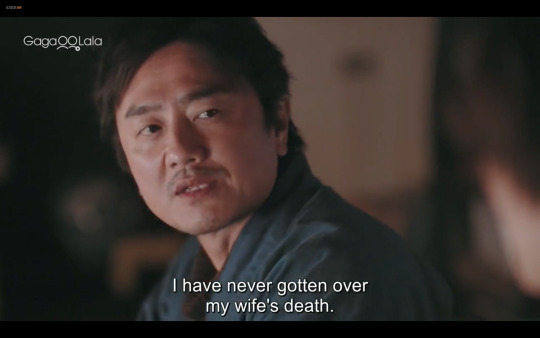

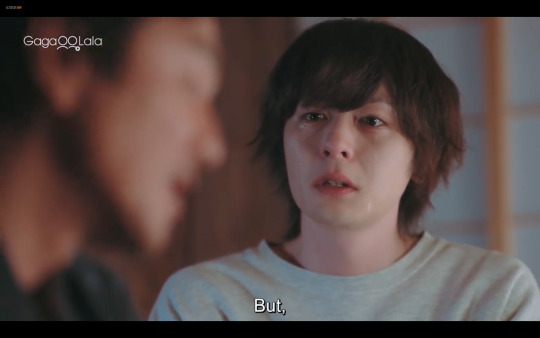
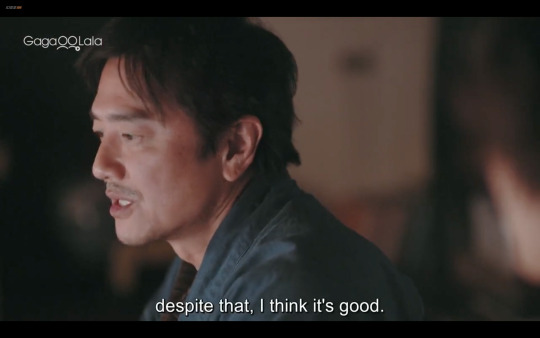



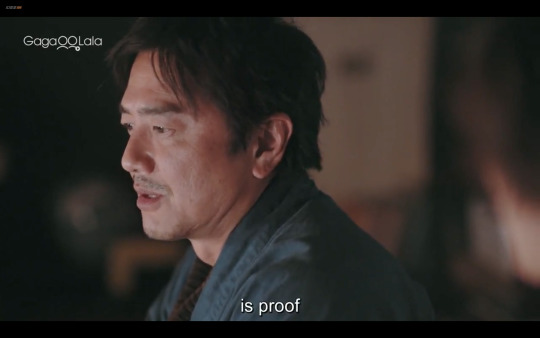

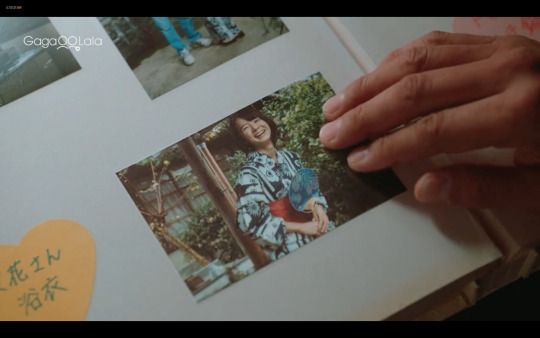
I’m using some big generalities here, so let me explain where I’m coming from. During certain large portions of my life, I’ve explored either becoming a Buddhist, or at least practiced Buddhism, particularly Zen Buddhism. While the world of Western capitalism has unfortunately taken up the majority of my current time/life, I do still have a desire to learn more about the history of Buddhism and try to incorporate some kind of practice in my daily life.
The reason why I offer that caveat is that a core of teaching in at least the spaces of Buddhism that I’ve been privy to, is the recognition of pain and suffering in one’s life. Suffering is a core tenet of Buddhism, one of the Four Noble Truths, and one that a human being does good deeds or makes merit in light of (as we see quite often in our beloved BLs) in order to receive “good” karma for a happy existence in this life or the next. (Again, mad generalizations here, but you get the point.)
I’ve been thinking about this because I often wonder if us Western viewers (I count myself as one, as an Asian-American) are too demanding for linear, clean, direct, and/or happy communication, narratives, and endings, particularly in the realm of Asian BLs, in regards to either romantic love and/or love from one’s nuclear parents/family. I think about this very much in the context of the Asian BL genre, where queerness -- as accepted, OR NOT, in Asian societies, friend groups, and families -- may indicate an existence that is not necessarily a happy one.
There are other issues by way of demands from fans that often determine the outcome of a BL script, such as shipper demands for overtly sexual content. What I’m proposing here is that, in my opinion, some of the best dramas/BLs from Asia are rooted in a reflection and acceptance of the tenets of suffering as a natural part of Asian life and, subsequently, Asian art. I further propose that because of that acceptance of suffering, that we — Western viewers — are often left potentially feeling unsatisfied or unfulfilled by a particular ending of a drama. I posit that the linear/binary/clear outcomes that Western audiences so often demand are limiting in comparison to the non-binary, non-linear journeys and conclusions of art that Asian filmmakers can reach in their work, vis à vis à general cultural understanding that pain and suffering are a part of daily life.
Before I give a drama example, let me use one from real life, that is so very often reflected in art: filial piety. I wrote about filial piety quite a bit in my reviews of Double Savage, a non-BL from Thailand that focused on the plight of a discarded son who was judged by his father as a jinx.
When I try to explain to Western friends that Asian parental love is very often conditional (I myself have experienced it, and my experiences mirror those of my friends), I experience a lot of denial.
“There is NO WAY your parents don’t love you.” “There is NO WAY your parents will ever give up on you. Even if they treat you badly, they love you.” “In the West, we ALWAYS end up loving our children. That’s what society demands of PARENTS. We’re CONDITIONED to be like that.”
A major cultural competency issue that Western therapists face with Asian clients is when Western therapists say to Asian clients who are having family issues, “why don’t you just talk to your parents about what you’re feeling?” Talking to Asian parents about a child’s feelings, in MANY instances, is not realistic. The language of that kind of emotion may not even exist. AND, there are unspoken social boundaries AGAINST children having those conversations with their parents in the first place. To have those conversations would very well ROCK the foundation on which Asian families are structured.
My parents may love me — the dad in Double Savage mayyyy have loved his son? — but an Asian parent like that, so rooted in their JUDGEMENT AGAINST an offspring, will often not budge. Time and time again, my Asian friends and family will talk about how they felt unloved as a child -- especially if their skin was darker, if their siblings were more successful in school, if they were a middle child, etc. VERY often, our Asian parents don’t know what us children do by way of work -- my parents don’t know anything about my work, for instance.
The Western perspective and social demands for a STYLE of loving one’s children in a very particular, involved, and empathic way -- those cultural expectations don’t necessarily exist in Asia. So we see parents like, say, Non’s father in Dark Blue Kiss; or Korn’s father in Double Savage; or ESPECIALLY Uea’s mom in Bed Friend, a fantastic example of an Asian parent who takes PERSONALLY every aspect of her son’s social and sexual “differences,” blames him for those differences, and accuses him of ruining HER life vis à vis how he was born to be the way that he is.
And yet, at least for Korn and Uea -- we see those children, for the majority of their dramas, continuing to devote themselves to their parents. Because filial piety -- the Asian cultural and social demand for RESPECTING one’s parents above all else -- is existent and EXPECTED of almost EVERY living Asian, no matter where you live on the continent or your various diasporas.
The equation is: even if you suffer at the hands of your parents, even if you don’t receive unconditional love and empathy from your parents, you must sacrifice in order to respect and serve your parents. You can imagine how much therapy even one individual would need to process that -- if that individual even ALLOWED themselves to think about what was happening, which oftentimes doesn’t even happen.
I’m not saying that filial piety EQUALS suffering. What I’m saying is that the practice of filial piety will almost always ASSUME a level of suffering that one must undertake to participate in the practice of honoring one’s parents.
Where I felt this *assumption* most strongly and recently was in my viewings of three Aof Noppharnach shows: He’s Coming To Me, Dark Blue Kiss, and Our Skyy 2 x Bad Buddy x A Tale of Thousand Stars, but I think Double Savage and Bed Friend also fall into this category as well. Very quickly:
1) HCTM was rooted in storytelling around the practice of Thai-Chinese Buddhism. Thun’s suffering was apparent: he was fatherless, he was gay, and could see ghosts. AS WELL, Med’s suffering was that he didn’t know how he had died, and why he was being held in purgatory before moving on to his next life.
2) Dark Blue Kiss was rooted in internalized homophobia. My big review of DBK is coming next week, but quickly, between the two main couples (PeteKao and SunMork), you had internalized homophobia playing various roles of emotional INTERPLAY, that AFFECTED the external emotional demonstrations of the character -- particularly in Pete, who was viscerally working on becoming a calmer person, but was triggered by Kao’s internalized homophobia to not be open about their relationship, and Pete’s jealousy subsumed him. DBK is the only show I’m mentioning here that has a clean happy ending for all couples involved, but more on that in a second.
3) OS2 x BBS x ATOTS, on the Pat and Pran side, was rooted in a clear but indirect conflict between Pat and Pran about openness and independence. If Pat and Pran had been open about their relationship (à la Pete and Kao) -- would Pat have needed to sound tough to his engineering friends that Pran *depended* on Pat to close loops? And on the Tian and Phupha side -- there is plenty we don’t know about Phupha’s past to make judgements, but I think it’s safe to say that he grew up in such a rural environment in Thailand as to make him assume that coming out and meeting his partner’s parents was an non-reality for the majority of their relationship, until the end of the OS2 series. The journey to get to the point of the ring was a tough one, particularly for Tian, who wanted more openness.
4) Both Double Savage and Bed Friend seem to end happily, especially for Uea and King in Bed Friend. But: Uea loses his parent. Yes -- he NEEDED to lose his mom, because of how toxic she was. But from an Asian family structure perspective -- he only has his sister by the end of that traumatic journey, which is not necessarily an IDEAL or complete ending. The bonds among Korn, Win, and Rung are permanently affected by the behavior of Korn and Win’s dad in Double Savage. The ending is a copacetic one -- they have survived, and will learn to survive together, after all the trauma they have lived through. But it’s not necessarily a HAPPY one. Both of these endings do not necessarily reflect the holistic ideal of the Asian family structure.
I emphasize all of this because, as I said earlier: I think a Western demand to CLOSE LOOPS in Asian dramas is unrealistic.
In Asian life (big generalization, but let me roll with it): you are angry at your parents, and you process it internally, very often without any help, and after a couple days, things go back to the way they were. The children do not demand change from their parents.
In OS2 x BBS, what I DIDN’T SEE -- and, from this framework, what I argue that I DIDN’T *NEED* TO SEE -- were any clarifying conversations between Pat and Pran about how either of them would CHANGE for their relationship. The biggest confession we got was Pat telling Pran, “without you, there is no me,” and Pran quietly agreeing (thank you to @lurkingteapot and @dimplesandfierceeyes for the incredible post on the improved translation of “I can’t live without you”).
But throughout the episodes, we saw their existence together, and arguably, their conditions -- how each of them has organized himself to comport to the other’s immediate needs. How Pran’s larger burden of keeping in the closet to keep his nuclear family structure stable kept them from being totally out, and how Pran designed fibs to be able to have at least one public demonstration of love between him and Pat on stage. They know they cannot solve intergenerational trauma in the span of a series. They’re still closeted two years later. And throughout all of this: how Pat digests Pran’s needs, and keeps his (Pat’s) own needs for openness at bay. We know he feels pain, too, when he makes his confession to Pran in Pha Pun Dao. We know he’s watching Pran as Pran hesitates to put on the bruise cream.
I feel that Pat’s acceptance of this existence is both heart-rending and utterly beautiful from the perspective of seeing Aof’s work as *Asian* art. I feel like, as an Asian, that I KNOW, that PAT KNOWS, what Pran has to lose. Pran has A LOT to lose. And so, Pat -- instead of demanding for outing and openness -- will hold what Pran needs him to hold. He knows when Pran is grumpy, and needs to be grumpy. And Pran’s got a lot to deal with. He’s got so much that he’ll need to go to Singapore, likely to get separation from his mother -- and that will result in him and Pat being separated (and I’m intentionally not analyzing Pran’s need for space from Pat here, but I think we can safely argue that, too, as Pat’s helpful attitude may smother Pran at times) (and there’s also the issue of the nuclear pain that Pat himself may feel at losing trust in his father for his father’s past foibles).
After the OS2 episodes, I didn’t need to know THE REASONS, the stark REASONING for why Pran needed to go to Singapore -- because, indirectly, it was already very clear to me that these young men were already holding tremendous burdens. Singapore, for Pran AND for Pat, could have ultimately been a motivator for growth. But I don’t need to know this. All I know is that they continue to have various levels of pain that they will be dealing with in their nascent adult lives.
While Dark Blue Kiss ULTIMATELY had happy endings -- how it got there was PAINFUL. Kao was ROOTED in fear that he would upend his family’s stability, while being the breadwinner. He was held back by extremely traditional role expectations of an older son. And he had no communication with his mother about straying from those roles. Pete’s dad served as the first -- and, I’d argue, maybe BL’s first -- paradigm-breaker as a parent, being SO open about his son’s queerness as to encourage healthy sex practices. But what I argue in this thesis is that up until the very last, bitter end, Kao was relegated to ASSUME that he would live in pain. His expectation was that Pete would ride with him. Pete couldn’t take it anymore and bubbled over. And Kao was forced to make a decision, for Pete’s sake, literally, to BE open, and to save the relationship. That shit ain’t easy.
Lots of folks who have read my posts on this site know that I appreciate a good Asian drama rooted in family and/or community trauma, like 10 Years Ticket. It’s the way in which Asian filmmakers depict this trauma that speaks very much to my life, my culture, and my viewpoint on what’s realistic in this world, and how that reality can be depicted in art. What I’ve found in watching Asian dramas is... I don’t always want clean endings. I don’t always want loops closed.
Sometimes, Asian kids can’t talk to their parents (Pran, Kao). If you grow up like that, you don’t immediately learn the language of intimacy for your family members, your friends, your lovers (Pran’s struggles after BBS/ep5, Thun’s coming out and not knowing the words for it). It might be EASY, or culturally UNQUESTIONABLE, to not argue with your parents about the ways in which they engage with their children (Korn, Win, Pran). Sometimes, to make a break in order to survive, you need to leave a toxic family member behind, which is NOT an ideal scenario (Uea).
Sometimes, you lose the love of your life (Ueda-san in Our Dining Table). Sometimes, you fall in love with someone — and you find that you can’t *exist* without them (Pat to Pran). And you have to live with the pain. I might even posit that the risk of that pain makes the love you have, either for the person living or the person passed, that much more meaningful to you.
I watch Asian dramas because I don’t feel like Asian filmmakers are subject to the Western demand to clean up all emotionally questionable loose ends. This is not When Harry Met Sally. Harry and Sally should have only remained friends, and not gotten married -- even Nora Ephron and Rob Reiner knew that -- but they also realized that Western audiences would not accept such an ending.
“The script initially ended with Harry and Sally remaining friends and not pursuing a romantic relationship because she felt that was "the true ending", as did Reiner. Eventually, Ephron and Reiner realized that it would be a more appropriate ending for them to marry, though they admit that this was generally not a realistic outcome.”
If I don’t get clean clarity in Asian dramas, I’m okay with it. My mind switches to the pain POV, that relativity mindset. Everyday life in Asian cultures can handle the weight of the painful and sufferable unknown. And that’s why I love these shows.
And, OF COURSE, not ALL Asian dramas are like this! Cherry Magic ended wonderfully. Old Fashion Cupcake ended beautifully. KinnPorsche ended sexily, if not a little confusedly (are they related? kinda? or not? whatever?). Minato’s Laundromat ended happily -- although we’ll see their relationship pain points in the upcoming second season. And we see relationship pain points in the ongoing drama of Shiro and Kenji’s relationship in What Did You Eat Yesterday -- all while they share their happy nightly meals together at their kitchen table.
Life is complicated. I posit that Asian dramas, for my taste, satisfaction, and cultural relativity, do a much better job at depicting that complicatedness than the West can ever do, and that’s why I stand so often on my soapbox to encourage Western viewers to understand these Asian cultural touchpoints more -- to learn about how we’ve accepted pain and suffering as an automatic given in our Asian lives, from our cultures, our spiritual practices, and from living amongst each other.
#our skyy 2 x bad buddy x a tale of thousand stars#bad buddy#a tale of thousand stars#our skyy 2 x bbs x atots#he's coming to me#dark blue kiss#bed friend#double savage#pat x pran#pran x pat#patpran#pranpat#pete x kao#kao x pete#petekao#our dining table#minoru x yutaka#yutaka x minoru#pain and suffering in asian culture#suffering in buddhism#the four noble truths#pain and suffering in asian dramas#pain and suffering in asian BLs
188 notes
·
View notes